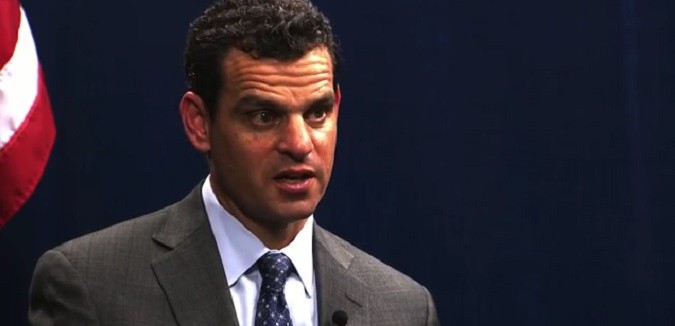Turkey seems set to renew its diplomatic relationship with Iran and deepen its trade ties with the Islamic republic, even as top U.S. officials pleaded with Turkish officials on Monday to heed Washington’s insistence that remaining sanctions on Iran mean that the country “is not open for business.”
Speaking in Turkey, which is looking to expand business opportunities with its neighbor Iran, David Cohen, the US secretary for terrorism and financial intelligence, said a significant portion of sanctions against Iran remained, including in the banking, energy and shipping sanctions. “Iran is not open for business,” Cohen said. “Businesses interested in engaging in Iran really should hold off. The day may come when Iran is open for business, but the day is not today.”
Turkey’s Prime Minister Recep Tayyip Erodgan and his Justice and Development Party (AKP) had for the better part of a decade cultivated close ties with the Iranian regime, providing valuable economic and diplomatic lifelines to Tehran in the face of Western efforts to isolate the Iranians. Bilateral relations between the two countries were severely strained during the opening years of the Syrian conflict, though Turkey’s role as a sanctions-busting pipeline for Iranian assets remained. Turkey’s rush to fully reenter Iran’s markets since the announcement of the Joint Plan of Action (JPA) has come at such a pace that it has wholesale threatened the White House’s insistence that the relief provided to Iran was “limited, temporary, targeted, and reversible.” Turkey has pursued diplomatic rapprochement at a similar pace, and Turkish media announced Tuesday that Iran and Turkey will establish a high-level cooperation council during a Tehran visit that Erdogan will leave for Wednesday.
Paying a two day visit to Tehran, Erdoğan will hold talks with Rouhani, First Vice President Eshaq Jahangiri, and the religious leader Ayatollah Ali Khamanei. He will also deliver a speech at the international institute of the Iranian Foreign Ministry. According to Iran’s Foreign Ministry, a visit to Turkey by President Hassan Rouhani will also be on the agenda. Spokeswoman Marzihe Afkham described the visit as “very important.”
“Dialogue and contacts have entered a new phase, and we hope this trend continues. Besides serving the interests of the two countries, we hope [our dialogue] will serve the interests of the region as well,” Afkham said. Energy-hungry Turkey is planning to increase oil and gas imports from Tehran after the gradual lifting of sanctions on the Islamic republic’s energy sector after an interim nuke deal with the West.
[Photo: U.S. Department of State East Asia and Pacific Media Hub / YouTube]




